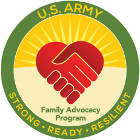Talking to your child about healthy sexual behavior
It is normal for most caregivers to feel uncomfortable when talking about sexual behavior with children. This may be due to not knowing how the child will react or a fear of saying something that criticizes or shames the child, which could shut down the conversation. Below are some tips on how to approach these conversations.
1. Check your reaction on what you have observed or heard about
Are you angry, shocked, or fearful of what has happened, confused about what to do, or worried about your child or other children? Take a moment to rationally gather your thoughts about what happened and how you want to educate your child about sexual behavior.
2. Consider a child’s sexual behavior in the context of their development
Many factors can influence a child’s development. Often, not all of them are known to caregivers. Nevertheless, try to understand your child’s behavior in the context of their current age and stage, as well as their family and social environment. Very often, behavior is a result of curiosity and exploration. Consider what your child currently understands about the body and its functions. Given the proliferation of pornography, children may have a very misguided idea of how the body functions and for what purposes.
3. Consider what messages you want to send to the child
Avoid snap, knee-jerk reactions and punitive measures such as yelling and spanking, which may send a message that the child is bad. Try to postpone any conversation until you and the child are calm and ready to discuss what happened without fear or shame. While planning for the conversation, consider what you want your child to know about appropriate sexual behavior.
4. Decide on a course of action
Messages should emphasize that sexual behavior is a normal part of life, but it develops as the child develops. Normalizing sexual behavior can help to prevent a child from feeling ashamed about what happened. Emphasize that in time, the child will learn what is the best course of action in sexual matters. Reassure them that you will be there to help them as they grow and want to learn more at each developmental stage.
5. Seek resources for yourself that explain various children’s reactions when talking about sex.
Resources can include other family members, friends, teachers, coaches, physicians, counselors, religious leaders, and other trusted contacts. Concerns about a child’s possible developmentally inappropriate sexual behavior should be addressed with healthcare providers who have specialized training in the assessment and treatment of such children.



